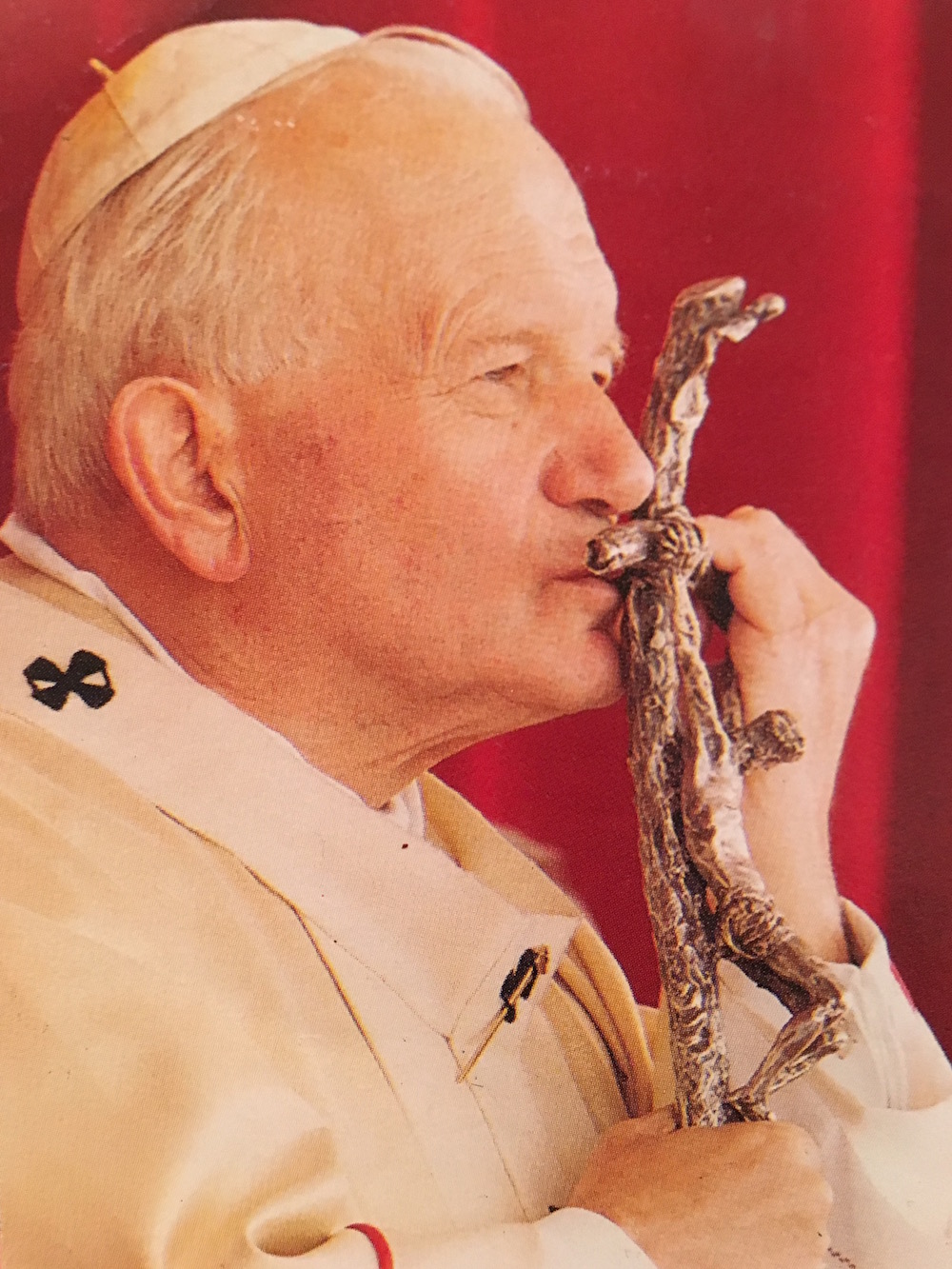Dear Friends, While I generally try to avoid controversial pieces, I feel called to weigh in on what I believe is a fundamental problem with the presidential election we are facing. May the Lord guide our nation as we go forward, and may he give us the grace to again walk in his ways. In the hearts of Jesus and Mary on this Feast of the Holy Rosary, Judy

Man, who is the only creature on earth which God has willed for its own sake, cannot fully find himself except through the sincere gift of self. Second Vatican Council. Pastoral Constitution on the Church in the Modern World, 24.
Whom to vote for on November 8? That seems to be the million-dollar question these days. Many people feel that we are living in an absurd election cycle with two unacceptable candidates running for president. The debate about which one to choose is paramount among Catholics who feel that neither major party nominee represents a Catholic worldview.
While confusion abounds, one thing seems clear: both candidates share the same fundamental problem. They’ve built their proverbial houses on what St. John Paul II called “models of male domination”—systems of power based on a fallen, disordered prototype of “masculinity” that rejects the concept of “being a sincere gift of self” in the image of Christ and instead endorses ruling over others at any cost, using aggression and violence when “necessary.”
In reality, Saint John Paul II’s words regarding “models of male domination,” which the sainted pope penned just over twenty years ago in his encyclical letter The Gospel of Life, are nothing short of prophetic. That’s because his words are incarnated, albeit in different ways, in the platforms and lifestyles of both presidential candidates:
1) Donald Trump, an ultra-Alpha male with a lifelong creed of radical domination in the personal and economic spheres who has fully embraced unbridled capitalism and the shameless objectification of women, among other things denounced by John Paul II.
2) Hillary Clinton, an ultra-Alpha female with a lifelong creed of radical domination in the socio-political realm who has aggressively promoted socialist policies and the shameless objectification of unborn children, among other things decried by John Paul II.
If we personalize Saint John Paul II’s words in The Gospel of Life and address them to each of these candidates, they would say:
My dear Hillary,
In transforming a culture so that it supports life, women occupy a place in thought and action that is unique and decisive. It depends on them to promote a “new feminism” which rejects the temptation of imitating models of “male domination” …You are called to bear witness to the meaning of genuine love… Women first learn and then teach others that human relations are authentic if they are open to accepting the other person: a person who is recognized and loved because of the dignity which comes from being a person and not from other considerations, such as usefulness, strength, intelligence, beauty, or health. This is the fundamental contribution which the Church and humanity expect of women. And it is the indispensable prerequisite for an authentic cultural change.” Pope John Paul II, The Gospel of Life, par. 99
And to the Donald?
My dear Donald,
In a word, we can say that the cultural change which we are calling for demands from everyone the courage to adopt a new life-style, consisting in making practical choices – at the personal, family, social and international level – on the basis of a correct scale of values: the primacy of being over having, of the person over things. This renewed lifestyle involves a passing from indifference to concern for others, from rejection to acceptance of them. Other people are not rivals from whom we must defend ourselves, but brothers and sisters to be supported. They are to be loved for their own sakes, and they enrich us by their very presence. Pope John Paul II, The Gospel of Life, par. 98
These words are eerily spot-on, are they not? That’s because what we are seeing today is the ripe fruit of the “culture of death” that John Paul II vigorously sought to evangelize during his long pontificate; a “culture of death” that has ramped up with such force and blatantcy that it leaves us practically speechless—and voteless—right now.
In my opinion, whomever we choose on November 8, we lose. We can expect no life-giving societal change from either candidate until each begins to understand that all human beings are made in the image and likeness of God, “exist mutually ‘one for the other’,” are created to love and be loved, and are called to be ruled by the supreme law of love. No other type of governance will do. And no other form of governance will give us the freedom, peace or protection we yearn for.
This article was previously published at Aleteia.


